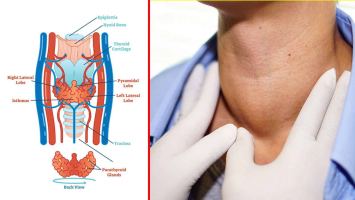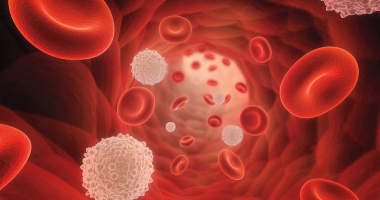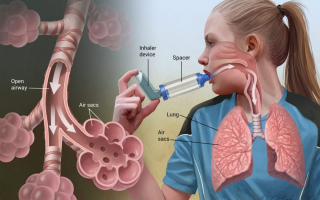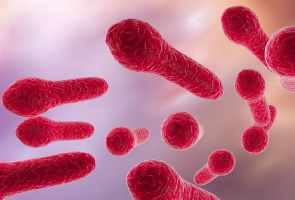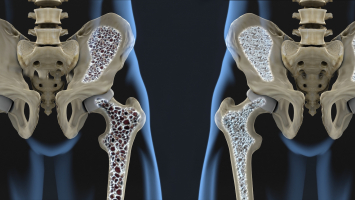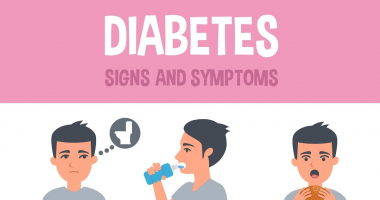Top 7 Signs and Symptoms of Lung Cancer
Although lung cancer kills over 1.3 million people worldwide each year, it is not a difficult disease to detect and avoid. Early detection can cut the chance ... read more...of death by up to 50% and keep cancer cells from spreading to other parts of the body. If you can recognize early warning signs of lung cancer, as summarized in the Toplist below, you can treat the disease considerably more effectively.
-
Dry Cough is one of the earliest signs of lung cancer. "Sometimes, in the periphery of the lung, a tumor can grow to a relatively large size before being diagnosed because it doesn't cause many symptoms", says Dr. However, if a tumor presses on one of the bronchi, the main airways that go to the lungs, it activates the cough receptors. "It can trigger a cough even when the tumor is relatively small if inserted in the right place", explains Dr. McKee.
However, cough is a very nonspecific symptom. When you cough, cancer isn't the first thing that comes to mind. Both the common cold and flu can last for a few weeks. Despite having sensitive lungs, it's not normal for a cough to persist even after a runny nose and other symptoms disappear. You don't have to worry about lung cancer in that situation if it's related to a viral illness.
One of the symptoms suggestive of lung cancer is a dry cough that lasts for more than 2-4 weeks, is not associated with an inflammatory airway condition, and does not respond to standard treatments– bronchi, other metastatic cancer squeezing the throat, larynx, and mediastinum. Hoarseness that persists is a sign of vocal cord dysfunction (due to injury to the vocal cords or the nerves that govern them), which can be a sign of laryngeal or glandular cancer armor.

Dry Cough 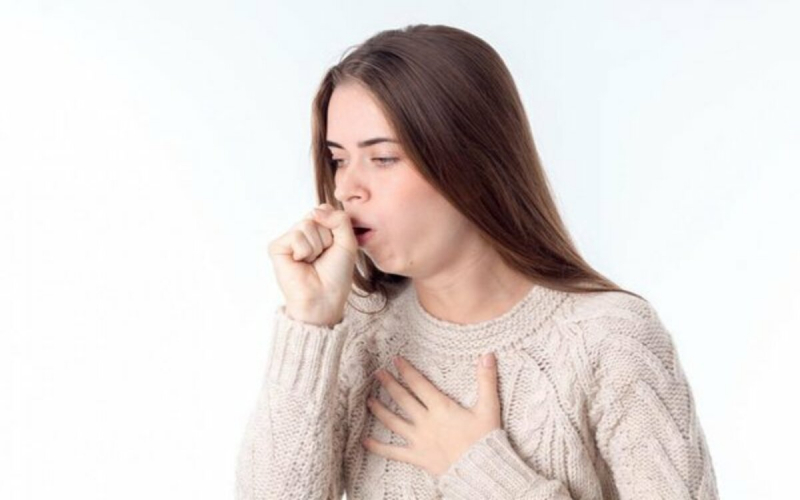
Dry Cough -
The patient may have abnormal bleeding in a variety of places depending on the organ where the malignancy is located. Vomiting blood, coughing up blood, blood in the urine, and bloody feces are just a few examples of bleeding symptoms. Abnormal vaginal bleeding can be caused by vaginal and cervical malignancies during periods, after intercourse, or after menopause. Furthermore, continuous bleeding under the skin (bruising) might be a symptom of cancer, as it can disrupt blood clotting - hemostasis.
The symptoms caused by the disease may emerge single or in combination, or have additional symptoms, depending on the location of the malignancy, the level of invasion to nearby organs, blood vessels, nerves, or spreading throughout the entire body. For example, lung cancer with mediastinal lymph node metastasis can cause a persistent dry cough, as well as weight loss and fatigue; stomach cancer in its early stages can cause digestive problems (which can be easily confused with other benign stomach and esophageal diseases such as ulcers, reflux...), as well as tiredness and weight loss.

Unexplained bleeding 
Unexplained bleeding -
Weight loss is one of the early indications of cancer that patients may encounter, and the cause may be related locally to gastrointestinal irregularities or to a systemic condition caused by cancer pathology. caused by e-mail If you have unexpected, short-term weight loss and/or a loss of more than 10% of your body weight without a clear cause (such as intentionally changing your diet Or exercising to lose weight or stress), you should see a doctor because it could be a symptom of a health concern.
In any event, fast weight loss without apparent explanation, unconnected to calorie restriction or activity... is most often the result of an illness, such as cancer. Furthermore, if you have no appetite, it is easier to establish that the cause is a tumor inside your body, with the exception of a lung tumor that develops into lung cancer later. This tumor will dramatically boost your metabolism, resulting in the symptoms listed above.
Unexplained weight loss 
Unexplained weight loss -
According to the American Cancer Society, regular shortness of breath or a hissing sound when breathing could be signs of lung cancer. Because a tumor clogs your airway or gathers fluid around your lungs, putting pressure on your lungs, you may have difficulty breathing. Many people generally don't pay attention because being out of breath is commonplace. However, if you have problems breathing even during routine activities like ascending stairs, carrying a shopping bag, or other non-stressful activities, you should see your doctor immediately once.
When the lungs are squeezed, obstructed, or irritated, they produce a hissing sound. Many other illnesses, such as allergies and asthma, also cause wheezing. Wheezing or shortness of breath may not be a significant symptom. However, if you experience problems breathing after sprinting up the stairs when you haven't before, you should see your doctor right away because these symptoms are most likely the result of a lung tumor obstructing your breathing. This is not a sign to be ignored! If your wheezing persists, you should see your doctor straight once. In any case, knowing you're sick is preferable to pretending you're not.

Shortness of breath 
Shortness of breath -
Many individuals believe that shoulder pain is caused by a physical injury. Shoulder pain, on the other hand, might be a warning sign of lung cancer that should not be overlooked. A lung tumor that has migrated to the bones in and around the shoulder or spine can also cause shoulder pain. If you have a huge tumor in your lung, it can press on adjacent structures, causing shoulder pain.
Some shoulder pain occurs when the tumor puts pressure on the spinal nerves in the lungs. The brain then processes the pain signal and assumes the cause is from the shoulder, even though the pinched nerve is in the lungs. This condition is referred to as referred pain, i.e. the localization of pain does not coincide with the localization of the stimulus in the sensory system.
Lung cancer can cause severe shoulder pain, especially if you smoke, the pain will manifest itself as: Present even at rest, not related to any strenuous activity involved to the shoulder occurs at night, no signs of improvement after a few weeks.

Shoulder Pain 
Shoulder Pain -
The cancerous tumor will place pressure on nerve blood vessels in neighboring tissues and organs as it grows and spreads, which can cause discomfort. Each person's pain threshold is different. As a result, if the pain is continuous, new, and unknown in origin, the pain is not relieved by common pain medications, or the discomfort is worsening, the patient should visit a doctor at the hospital. Soon, the site of pain will vary depending on the type of malignancy and the compressive signs that accompany it.
Chest pain is a common indication of lung cancer, especially if you have pain deep in your lungs whenever you lift something, cough, or laugh. The patient may have pain in the chest, back, or shoulder, which usually corresponds to the tumor location. Coughing or taking a big breath aggravates the pain, which is persistent and dull. Furthermore, chronic chest pain that does not go away after a lengthy period of time can be a sign of lung cancer that you should be aware of.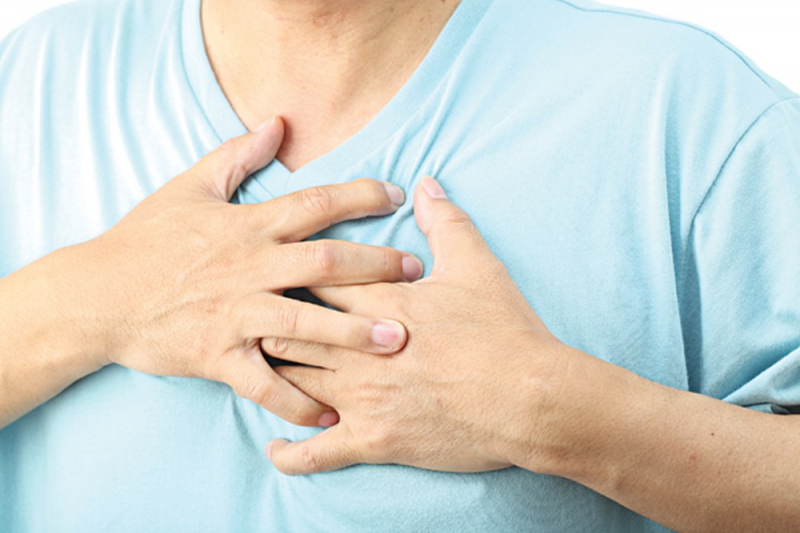
Chest Pain 
Chest Pain -
Blood from the lower respiratory system is coughed, coughed up, regurgitated, or vomited out through the mouth and nose, which is known as hemoptysis. Because hemoptysis is a sign of many disorders, it's crucial to understand what causes it. Coughing up bloody sputum with exertion reveals fresh bloody sputum. When spitting up, sputum may contain bright red or pink blood. The patient had symptoms of heat behind the sternum, chest pain, and a sore throat prior to coughing. This amount of blood will prevent you from succumbing to the impulse to spit and then running out.
Lung cancer is the most prevalent cause of hemoptysis, and it is a malignancy that is typically subtle, causing minimal symptoms in the early stages or only affecting heavy smokers. Long-term symptoms include a persistent cough, chest pain, shortness of breath, weight loss, and coughing up blood in small volumes. In fact, around 80% of lung cancer patients experience cough symptoms, which include dry cough, sputum cough, and hemoptysis. Cough, on the other hand, is a very general symptom, and cancer isn't the first thing that springs to mind. However, you should see an oncologist if your cough persists, has no recognized reason, and does not respond to treatment.
Hemoptysis 
Hemoptysis









